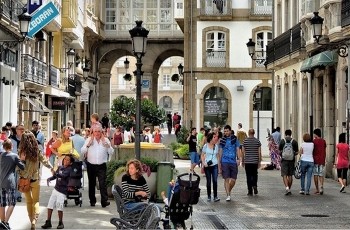シンクタンクからの眼 2024年12月2日
文化遺産と地域社会 Cultural Heritage and Local Communities

文化遺産と地域社会
文化遺産と地域社会は深く結びついており、その関係は地域のアイデンティティ、経済、そして社会的なつながりに大きな影響を与えます。文化遺産は、その土地の歴史や伝統、文化を体現し、地域の誇りやコミュニティの源となるものです。一方で、地域社会はこの遺産を支え、保存し、管理する重要な役割を果たし、その価値を次世代に伝えていく責任を担っています。
地域アイデンティティの強化
文化遺産が地域社会に果たす主要な役割の一つは、地域アイデンティティの強化です。文化遺産を通じて、その土地の歴史や文化的背景を共有することで、住民間に連帯感や地域への愛着が生まれます。これにより、地域住民が自分たちの土地に誇りを持ち、文化の継承に積極的に関わる動機が生まれます。たとえば、地域の伝統的な祭りや行事は、文化遺産と住民の結びつきを象徴しており、これらのイベントを通じて地域文化が世代を超えて維持されています。
地域経済の活性化
文化遺産は地域経済の活性化にも貢献します。観光資源としての文化遺産は、国内外から観光客を引き寄せます。観光収益が地域に還元されることで、地元の雇用が創出され、インフラ整備が進みます。これらの経済的な恩恵は地域社会全体の生活の質を向上させます。しかし、経済発展を過度に重視しすぎると、文化遺産の商業化が進み、地域の独自性や文化の純粋性が損なわれるリスクもあります。そのため、発展と保存のバランスを取ることが重要です。
地域住民の参加による持続可能な発展
文化遺産の保存や管理に地域社会が参加することは、持続可能な地域発展にとって非常に重要です。近年では、文化遺産の保存が専門家だけでなく、地域社会との協力によって行われることが増えています。地域住民が遺産保護に積極的に関わることで、遺産は単に「保存すべきもの」から「地域と共に成長する資源」へと変化します。この変化は、地域の持続可能な発展に寄与します。
健全な関係を維持するために
文化遺産と地域社会の関係を健全に保つためには、その地域の状況に応じた適切な管理とバランスが必要です。例えば、観光客が過剰に押し寄せる「オーバーツーリズム」は、地域住民の生活や環境に様々な影響を及ぼし、結果的に文化遺産そのものの価値を損なう可能性があります。そのため、文化遺産を活用する際には、地域社会の意見を尊重し、住民の生活と観光が両立できる体制を構築することが求められます。
このように、文化遺産と地域社会は共生関係にあります。相互の利益と持続可能性を追求することで、地域のアイデンティティが強化され、地域全体の発展が実現します。地域社会と協力して文化遺産を大切にすることが、地域の未来を豊かにするために欠かせないのです。
(雫 二公雄、JGRA学会理事長・元ETT創業支援推進機構理事・元大阪大学客員研究員)
Cultural Heritage and Local Communities
Cultural heritage and local communities are deeply interconnected, with their relationship significantly influencing regional identity, economy, and social ties. Cultural heritage embodies the history, traditions, and culture of a place, serving as a source of pride and self-esteem for the community. On the other hand, local communities play a critical role in supporting, preserving, and managing this heritage, ensuring its value is passed on to future generations.
Strengthening Regional Identity
One of the key roles cultural heritage plays in local communities is the reinforcement of regional identity. By sharing the history and cultural background associated with cultural heritage, a sense of solidarity and love for the community emerges among residents. This motivates local people to take pride in their land and actively engage in cultural preservation. For instance, traditional festivals and events exemplify the bond between cultural heritage and residents. These occasions provide opportunities to sustain local culture across generations.
Economic Revitalization
Cultural heritage also contributes to economic revitalization. As a tourism resource, it attracts visitors from both domestic and international spheres. The revenue generated from tourism circulates back into the community, promoting local employment and infrastructure development. These economic benefits enhance the quality of life for residents. However, excessive focus on economic growth may lead to the commercialization of cultural heritage, risking the loss of authenticity and regional uniqueness. Striking a balance between development and preservation is crucial.
Sustainable Development Through Community Participation
The involvement of local communities in preserving and managing cultural heritage is vital for sustainable regional development. In recent years, cultural heritage conservation has increasingly relied on collaboration with local communities rather than being solely handled by experts. When residents actively participate in protecting heritage, it transforms from something merely "to be preserved" into a resource that grows alongside the community. This shift contributes to the sustainable development of the region.
Maintaining a Healthy Relationship
For the relationship between cultural heritage and local communities to remain healthy, appropriate management and balance tailored to the local context are necessary. For example, over-tourism, where an excessive influx of tourists overwhelms the area, can negatively affect residents' lives and the environment, ultimately diminishing the value of the heritage itself. Therefore, when utilizing cultural heritage, it is essential to respect the opinions of local communities and establish systems that balance tourism with residents' lifestyles.
Conclusion
Cultural heritage and local communities are in a symbiotic relationship. By pursuing mutual benefits and sustainability, regional identity is strengthened, and overall regional development is achieved. Cooperating with local communities to cherish cultural heritage is indispensable for enriching the future of the region.
(Fukuo Shizuku, Former Visiting Professor at Osaka University・Chairman of the JGRA Research Association)




